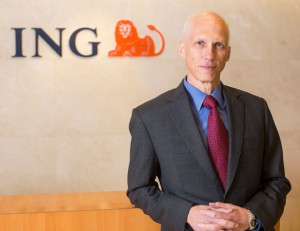Tim Condon, chief economist and head of research at ING in Singapore discusses the effects of the recent political turmoil in Thailand
What is your take on the military coup in Thailand from an economic viewpoint?
Well, I am willing to go with the wisdom of crowds. It seems obvious to me that industries are feeling a relief and that there is a little less uncertainty as a result of the coup. I think that is what investors want.
So the outlook is brighter than before the coup?
Yes, I believe it is. The absence of a functioning government was detrimental for the economy, but the risk of violence in the street became more and more elevated and that was unnerving for everyone. The coup has significantly reduced the likelihood of that. It is not the best situation obviously, because you have an extra-constitutional change of government.
But bloodshed has been avoided and there is a time frame for returning to a constitutional democracy. That is a significant reduction in uncertainty. People know that Thailand is a good place to do things and to make money and as long as politics are not significantly clouding the outlook, it is comforting to investors.

Do you see economic effects on Asean member states?
I don’t think there will be many effects apart from the weakness in Thailand and the existence of weak spending in Thailand two years in a row now. Of course, that is not helpful – first of all for the Thai people.
Could the coup have repercussions on the path to the Asean Economic Community?
It is possible. But there is also the likelihood that, due to the lack of a fiscal authority before the military coup, this situation was already created. That also could have delayed things. At this point the authorities have put the economy on the frontline in terms of their priorities. I think any delay in the timetable for integration will be very transitory.
Is political uncertainty on the rise in the region?
Well, yes. I think that the number of episodes we are seeing and the incidents themselves are higher than before. We are seeing more of these political strains in this part of the world.
Will the new middle class spur political demands?
All in all, this will happen inevitably. In some places, people have a voice and can act in complete openness. Democratic institutions in some countries, such as the Philippines and Indonesia, seem pretty well in place. The populations have access to very open media. The press is free to report. The citizens in these countries do have a voice and they will exercise it. So I would not be expecting pressure in all those countries for political change.
But in other places things are different. As people grow wealthier, there will be demands to have their voices be better heard and to get responses from the powers in charge. But I do not feel that is the case now.


